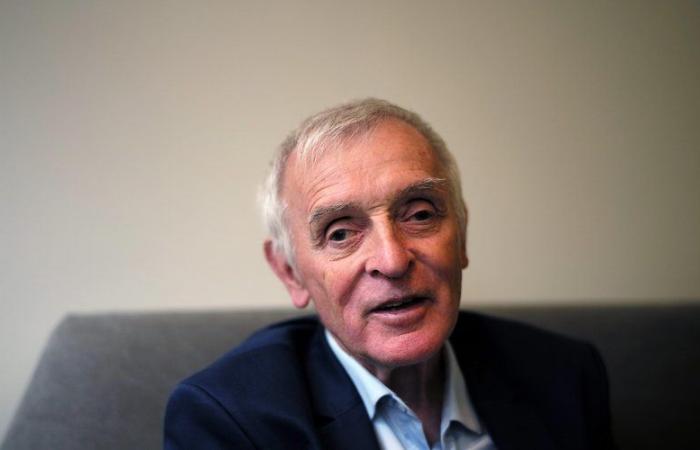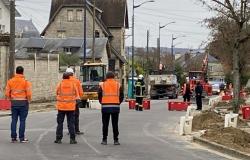
COP29, launched on Monday, is scheduled until November 22, in Baku, Azerbaijan, at a time when the UN announces hell and floods in its report on November 7. Taking stock of the situation with the world-famous climatologist Jean Jouzel, Nobel Peace Prize winner with the IPCC when he was one of its leaders.
What do you expect from COP29 scheduled until November 22, in Baku, Azerbaijan?
The first essential issue is North-South solidarity: developed countries must do more to help more vulnerable countries adapt to global warming. In Copenhagen (COP15, in 2009), a sum of 100 billion dollars per year was set from 2020. The first two years, it was not reached, in 2022 and 2023, it was.
But many of these are loans rather than donations. And to develop, for example, renewable energies, to move towards a carbon-free society, it would take at least 1,000 billion dollars. There is a gap between what we are proposing and the needs. However, this is the only way to guide developing countries towards a more virtuous society, which is absolutely essential.
The second essential issue is that of the efforts to be made to limit global warming, we are heading towards an increase of 3.1°C (compared to the pre-industrial era) in the second part of this century, to have chances of returning to 2°C, more ambitious commitments are needed than those currently on the table.
There is often a difference between announcements during COPs and the reality of the efforts made. What are these promises worth?
It is necessary to raise ambition, but it is just as important, in fact, to check whether countries are keeping their promises: in 2023, the first global assessment, over the last five years, showed that we were behind schedule in relation to the commitments made.
Are these COPs still useful?
Yes, we cannot say that nothing is being done. Without the COPs and without the IPCC diagnoses, on which they are based, the situation would be even worse. In the 1990s and early 2000s, average warming of 5°C was expected. Since then, for example, investments in renewable energy have taken off.
This COP is organized in Azerbaijan, a country which draws its resources from fossil fuels. Do you think this is problematic?
This is still three times in a row, after Dubai last year, this will also be the case next year in Brazil, which produces fossil fuels. But it is difficult to discuss the end of oil if we do not agree to discuss with oil-producing countries.
In Azerbaijan, there is also the human rights problem which has led some countries to propose a boycott.
Agnès Pannier-Runacher cancels her visit
Rarely has COP faced such unfavorable winds. At a time when international leaders are focusing on climate change in Baku, climate skeptic Donald Trump is preparing to return to the White House and the European Parliament validated, on Thursday, a new environmental setback: the postponement of one year of the law against deforestation further relaxed. The French Minister for Ecological Transition, Agnès Pannier-Runacher, also announced on Wednesday that she would not go to COP29 against a backdrop of tensions with Azerbaijan, even if Paris will participate in the negotiations.
Trump's victory darkens the outlook. Can she change the situation?
Donald Trump is not inclined to show much solidarity with the countries of the South, nor to increase the United States' commitments. While it is already the leading producer of fossil fuels, it wants to increase them further.
On the other hand, the United States is clearly engaged in the transition with the Inflation Reduction Act; it may not be so easy to completely call it into question, especially since last year it was the Republican states have benefited the most and economic dynamism is being created around carbon neutrality, like Elon Musk's electric vehicles.
2024 should be the first year to cross 1.5°C of warming. Can the ambitious long-term objectives of the Paris Agreement still be met?
The hope of meeting its objectives is further dwindling with the election of Donald Trump, which will undermine the dynamic. The risk is the driving force: if countries like Argentina followed Trump's decision to withdraw from the Paris agreement, it would be catastrophic.
The world is instead moving towards warming between 2.6 and 3.1 by the end of the century. What will be the effects?
The IPCC predicts more frequent and more intense extreme events (droughts, heatwaves, cyclones, etc.), as was the case with the out-of-control forest fires last year in Canada, where the equivalent of a quarter of our national territory burned on the spot. With repeated heat waves. Temperature peaks also increase much more quickly than average temperatures; we could occasionally reach temperatures of around 50°C in France.
Unfortunately, what has been envisioned for fifty years is happening. At + 3°C degrees, on a global average, it's another world, several billion inhabitants, all those located on the tropical-equatorial belt, would be in conditions that we describe as unlivable. Above 35 degrees and 80% humidity, you can no longer release your heat, you can no longer have a normal life outside (sport, work, etc.).
There will inevitably be consequences for the stability of the planet. People will probably have to leave these unlivable regions.
Sea level rise could reach another 50 centimeters, perhaps more, by the end of the century.
Regarding the torrential rains that we have experienced, we are only at the beginning. The Mediterranean is very hot, there is more water vapor in the air masses which leave the sea and come up against cold air masses (cold drops), or against the first masses, precipitation stagnates on a region and this leads to what was experienced in Valence, or to the Cévennes episodes.
Global warming, if we do not take action, is a threat to humanity and to the nature that surrounds us, biodiversity, the domestic animals that surround us, the herds. Agriculture will be disrupted.
The deadly floods in Valencia have been accentuated by climate change. What lessons do you learn from this?
We need to think about the consequences that this would have on the Mediterranean rim in France and take measures in terms of water evacuation, we need to de-artificialize the soil as much as possible. There is also the whole problem of prevention, of education in risk culture.
The forecast and the alert must be given at the right time, but they must also be followed, when there is a red alert, we do not go out we are quite far from the mark.
France unveiled its third climate change adaptation plan on October 25, to prepare to face +4°C degrees by the end of the century. Is he up to the challenge?
It is logical to anticipate a warming of around 4°C in France, even if it is a little despairing because it means admitting defeat. We must do everything to ensure that these 4°C are never reached in France, but we must still prepare for it. There is perhaps not enough ambition in the plan, we will see the details and especially if the financing will be there.
Ecological planning must also remain ambitious. The new government has not called into question our country's objectives, but I hope that they will be met. We would have to reduce our emissions by 5% each year until 2030 and also thereafter, it is not a given.
However, farmers often also point out environmental constraints.
I come from an agricultural background and I know its difficulties, but there have been setbacks, at the French level as at the European level, which are damaging for the climate, we are loading the mule for our children and their grandchildren . The agricultural model must adapt.
It is in the interest of farmers to take this transition head on because they are at the forefront of climate change, with droughts and heatwaves. Early heat waves are not good for the wheat or the vineyards.
There is no sector of activity which can say “I am not affected by global warming”, this is the case for industry and transport. But the transition has beneficial aspects; renewable energies can be, for example, a driver of territorial development.
What does the action of the Barnier government inspire you?
Michel Barnier had been a good Minister of the Environment. I met Antoine Pellion (general secretary for ecological planning), I understand that ecological planning will be maintained. Now, we must see the financial support that will be provided, but there is no fundamental questioning of France's objectives.
But there have been setbacks, particularly at the European level.
Yes, the “green deal” was very ambitious at the start, Covid has clipped its wings a little and there is less dynamism on the subject in the second term of the President of the European Commission, Ursula von der Leyen (the European Parliament validated, on Thursday, the one-year postponement of the law against deforestation and a further relaxation of the text, Editor's note).
The end of thermal engines in 2035 is really essential. Always coming back to the objectives, it is a mistake, including from the point of view of economic development, electric vehicles will prevail anyway, Europe has a card to play.





